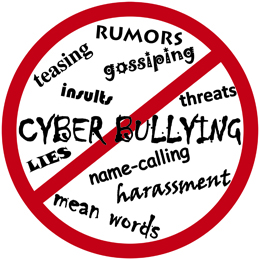Cyberbullying is defined as the use of technology to send or share mean, threatening or embarrassing messages or images to or about another person. It could be in the form of a text, email, message or social media post.
As soon as your kids begin to have internet access, parents must talk to them about cyberbullying. Discuss what is and isn’t appropriate to share online and establish cyber rules together, such as what sites your child will be allowed to visit and for how long. Explain that if something hurtful is shared online (via words, images, videos, etc.), it counts as cyberbullying, and it’s important that they tell you about it.
The tips listed below should help you protect your children:
- Tell your kids to think carefully about what they post as someone else could forward or share the entire message or any part of it. If there is a chance that it could hurt another person’s feelings or embarrass them, don’t post it. Remind them to be kind to others, including online. Before clicking ‘enter,’ re-read the post to ensure that it is in no way hurtful.
- Tell your children to only share their passwords with you. Remind them even friends could give passwords away or use them in ways they do not want.
- Be sure kids’ privacy settings do not allow just anyone to read your children’s posts. Explain that they must think about who sees what they post and limit that list appropriately.
- Keep up with what children are doing on line, who their friends are, their privacy settings, who they are chatting with, etc. Parents should friend or follow children.
- Encourage your kids to talk to you or another trusted adult about things they see online, or messages they receive, that they believe might be inappropriate. Make sure they understand that if they feel they are being bullied online, they should report it to a parent or other trusted adult.
- Online bullying usually happens outside of adults’ view. It often leaves an electronic trail of hurtful words or images. Adults don’t know it is happening unless kids tell them or they are closely monitoring their kids’ online activity.
Sources:
pacerteensagainstbullying.org/bullying-defined/, Stopbullying.gov, ncab.org, u/bullying-advice/bullying-for-parents


